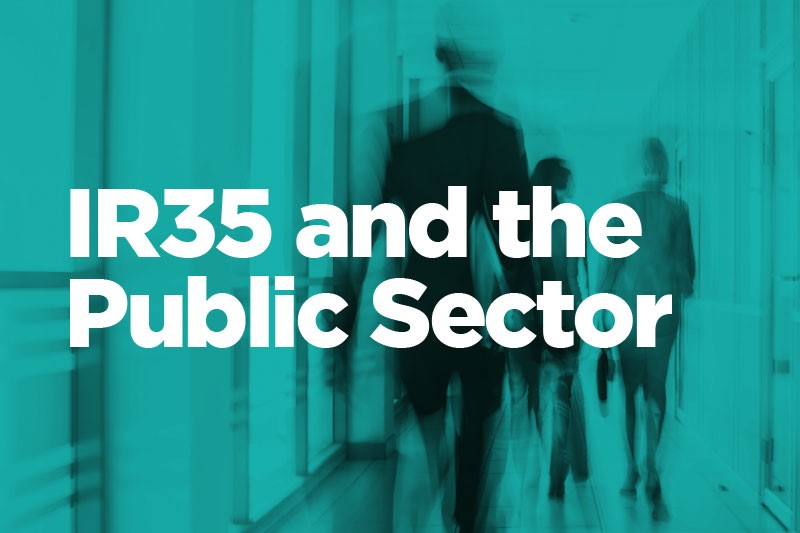- About us
- What we do
- Careers
- Investors
- Insights
- Client portal
IR35 and the Public Sector

Although the changes to the application of IR35 have been in place in the public sector since April 2017, the consultation on bringing these changes into the private sector has detailed some new processes that will also apply to you as a public sector user of contract staff from April 2020.
What’s staying the same?
- You will still need to make an in or out determination for each new role and take “reasonable care” when making it.
- You still need to supply a list of reasons in writing for the determination to the agencies you work with.
- You still have 31 days to comply with an agency’s request for these two things and if you fail to do so, you will be liable for any unpaid tax or NICs.
What’s changing?
- You will, additionally, have to provide the reasons for your in/out determination directly to the contractor, if requested.
- This could be an incumbent contractor or a new hire.
- The 31 day rule applies to this too.
- If HMRC fails to collect the tax & NICs due, liability initially rests with the party that fails to meet its obligations but where they are unable to collect, or where the end payer is offshore, they have the right to move up the payment chain as far as the end client.
- There are specific instructions from HMRC on making blanket determinations. They should only be made in very specific circumstances.
- There is now provision under HMRC guidelines for your determination to be challenged by either an existing or new contractor.
What you need to do
- Develop a standard template for making determinations for every contract position, both current and new. If you already have a template, you will need to update it.
- Develop a process for dealing with challenges.
- Decide how to use CEST, HMRC’s on-line tool for checking IR35 status, or another similar tool. CEST has come in for a lot of criticism from various industry bodies and lobby groups and the Government has stated that it will be making improvements to the tool and issuing further guidance prior to April 2020. We will keep you updated of any developments and what alternative tools are available.
- Avoid making blanket determinations.
- If challenged by the contractor, conduct a second determination, with the contractor themselves, to take into account factors pertaining to them.
- As the detail around the legislation develops or the assignment circumstances change, conduct new determinations at regular intervals (we suggest 6 monthly) using your chosen tool.
How we can help
- We can help you develop a bespoke, comprehensive step by step process for dealing with every aspect of IR35.
- We can help you develop a robust process for dealing with challenges.
- We can explain in what circumstances blanket determinations are acceptable.
- We can help prevent you from being liable for unpaid tax & NICs because of the exhaustive checks we carry out on payment vehicles.
- We have our own payroll department and operate a “deemed” payment service – many agencies do not.
- We can offer complete transparency of our payroll options – Consultancy, Deemed, Umbrella and PAYE (not every agency offers a PAYE option).
- We have a preferred list of 10 umbrella companies (most agencies offer 1 or 2), all of whom are UK mainland and independently compliance checked.
If you would like our specific support in regards to IR35, or some pointing in the direction of independent advice, please click here to contact us.
